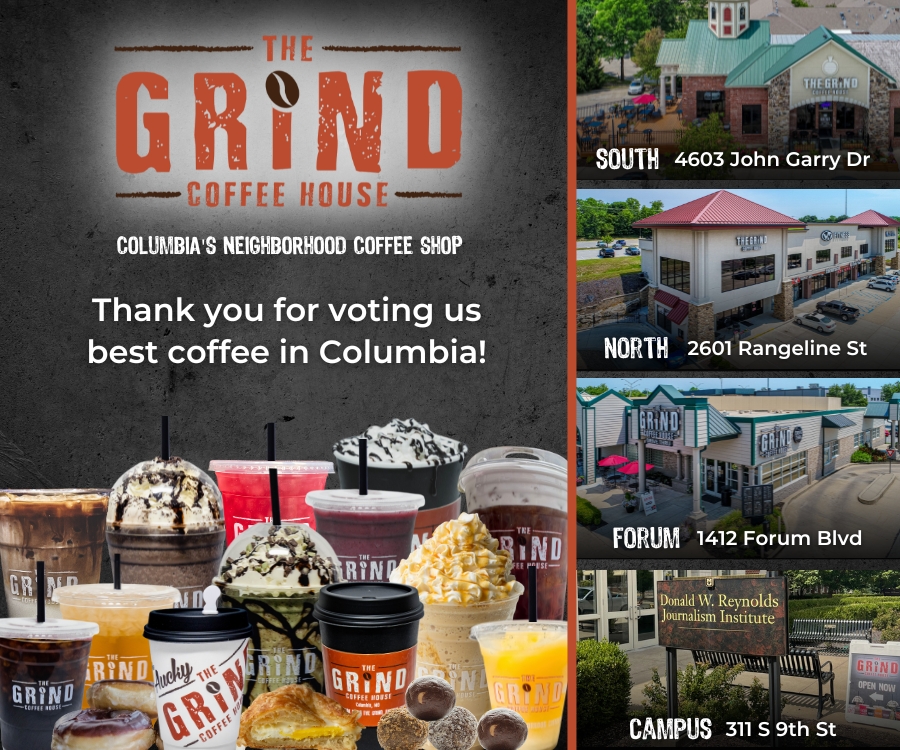Photos by Notley Hawkins
Post-pandemic, many of us are finally enjoying reunions and homecomings. That’s certainly true for the Boone County Fair, which returns to Columbia July 20 to 24 for the first time in 5 years. Its return in Columbia’s Bicentennial year is just the icing on the anniversary cake.
For Jeff Cook, owner of local business JC Landscaping and president of the Boone County Fair Board for the past 7 years, the reunion is super sweet: “We’re excited to bring it back home!”
The Lay Of The Land
The Boone County Fair started in 1835 and was the first county fair in Missouri — as well as the first one west of the Mississippi River. And, rather than fried twinkies and carnival rides, though those still exist, the county fair is meant to highlight agricultural efforts of our county’s young people. As Cook, who’s been on the fair board for 18 years, explains, “The agricultural youth is what it’s based around. The carnival and shows we bring in? That’s all just an attraction to help get people there. The fair is actually for the youth of Boone County to show their products.”
Boone County has an incredibly rich agricultural history, and Cook says that heritage is largely the reason why the county fair began: “Back then,” he says, “there wasn’t 4-H and FFA. When the fair first started, it was ‘open livestock’ classes where farmers brought their products. They’d come all the way from Nebraska to the Boone County Fair and show their prize bull or prize heifer. Also, their hay stock; they would bring in a bundle to show how good a crop they could grow and also the produce from their vegetable gardens and stuff like that.”
In the early years, Cook says, anybody could come and show — not just Boone County residents, something called “open class.” This held true while the fair was based in Columbia, but Cook says “we haven’t recently had that because we’d been moved to Sturgeon.” This year the fair will not yet be “open livestock class” again, because, as Cook says, “Being our first year back, we’re just kind of going into it softly.” There also will be no truck ‘n tractor pull or a Demolition Derby, partially due to pandemic restrictions, but pageants will still be held.
Weathering Wars And Weather
As Cook explains, the fair has evolved as the years have passed. Both 4-H and FFA began after the fair, and when World War I and II and droughts occurred, and farmers didn’t have adequate crops to participate, changes had to happen. Then of course, there was the 2020 pandemic.
Now that the fair has come back to Columbia and the fairgrounds is owned by the city, Cook acknowledges that working with the city’s special events committee proved a bit challenging. “They had to come up with a COVID plan,” he says, “and many were unfamiliar with the fair. How we gonna get through this? How are we gonna sell this to them, how important the Boone County Fair really is?”
In the end, it didn’t really prove problematic. Cook’s passion for the fair and its purpose is evident. “When I talk to people about the Boone County Fair, when they say they’re not involved, I say ‘well, why aren’t you?’ They say, ‘Well, we don’t live on a farm.’ You don’t have to live on a farm! We have all of these other angles for all of these other kids to be able to join 4-H. You can live in the middle of the Highlands and be a 4-H member!”
Earning Accolades — And Profits
Often, Cook presents to civic groups, offering fair history handouts to his audiences and stressing the significance of the fair and its purpose. The fair, he fervently explains, is “Rewarding kids for their hard work.” In addition to the accolades of taking home a ribbon in a vast array of categories including livestock, country hams, sewing, photography, woodworking, vegetables, pies, cake baking and more, kids can take home another reward: Kids whose animals ace their respective categories and win either a blue or red ribbon are included in the fair’s livestock sale — which is open to the public, by the way. As Cook says, “That’s their paycheck.” Also, Boone Electric picks 12 photos from those submitted to the fair’s photography competition for its annual calendar.
He adds that for the kids raising their animals, part of their project is to attract buyers for those animals. Some kids have issues due to lack of internet access or social media opportunities, he says. “Our kids are supposed to go out and bring in their own buyers, but not all kids have that opportunity. We get new families every year, because kids age out of 4-H and FFA and can’t show any more, but, “the general public doesn’t realize that the fair’s livestock sale is open for non-ag families to attend.”
The judges for the fair’s show are pros. They know the breed, muscle structure of the animal, and more. Cook says the fair prides itself on having a “premium sale,” with really, really good animals. They are all vetted and basically expert-approved.
Because the sale is open to the public, you can come out and bid on everything from a pen of chickens or a “meat” rabbit, all the way up to a goat, sheep, hog or steer.
Seeds Of Hope
Cook says the ag programs that he and the fair promote can also offer important seeds of hope to local kids who aren’t farm-raised. He cites how they are helping kids — particularly those who may be in food-insecure situations or may have single moms who can’t afford the time to teach them ag skills. He also mentions something that should be of note to all of us, post-pandemic: “Butchers can’t keep up with the meat processing,” he says. “So many people are opting to buy a side of beef or whatever due to hoarding and the pandemic and that need to be self-sufficient is big.” Another reason to consider a trip to the county fair and bidding on that beef!
But be forewarned: You may find yourself facing stiff competition: Several of those “fair-unaware” members of the city of Columbia special events committee that Cook encountered? They told him, “We’re gonna come this year!”
All’s “fair” in love and war.
The Boone County Fair: a History
The Boone County Fair has had to move over the years. Here’s a timeline, largely based on The History of the Boone County Fair, by Walter Proctor.

1835-1917
Location: Just east of the Stephens College campus. Likely where the stables are now located.
1841-1881 (approx.)
Location: A tract of land bounded by Rollins, Hitt, Porter and College Streets.
Early 1890s
Location: Pasture land in the southeast suburbs of Columbia.
The fairgrounds were sold after declining interest in the fair. At least two fairs were held on this site but were unsuccessful. In 1894, the fair was cancelled “almost without prior notice,” according to A Boone County Album published by the Columbia/Boone County Sesquicentennial Commission in 1971.
1897
Location: The end of Fifth Street, bordered by Wilkes Boulevard, Third Street, Mores Boulevard and Seventh Street.
The fair was revived by the Boone County Agricultural and Mechanical Society. The association leased and eventually bought the fairgrounds in 1947.
1947
Location: A 60-acre site between Broadway and Worley Streets.
The Boone County Agricultural and Mechanical Society was able to buy the fairgrounds’ land which it had originally leased.
1992
Location: Highway 63 and Oakland Gravel Road
1999 – 2015
Location: Highway 63 and Oakland Gravel Road
Fairgrounds sold to the county. County commission closes the Central Missouri Events Center, but allows the fair board to host the fair on the site that summer at a cost of $10,000.
2016-2020
Location: Sturgeon fairgrounds.
2021
Location: Fair returns to Columbia at original site on Oakland Gravel Road.
Fair Food Finds
“Fair” fare — typically deep-fried deliciousness of all varieties — have evolved since the first fair’s founding. From the traditional corn dog to the shall we say controversial deep fried twinkie, how many of the below have you sampled?
- Totchos
- Funnel Cake
- Deep Fried Kool Aid
- Cotton Candy
- Corn Dog
- Deep Fried Butter
- Pretzel
- Onion Rings
- Fried Bacon
- Deep Fried Oreo
- Fried Ice Cream
- Turkey Leg
- Fried Pickles
- Caramel Apple
- Kettle Corn
- Corn on the Cob
Photos by Notley Hawkins






















